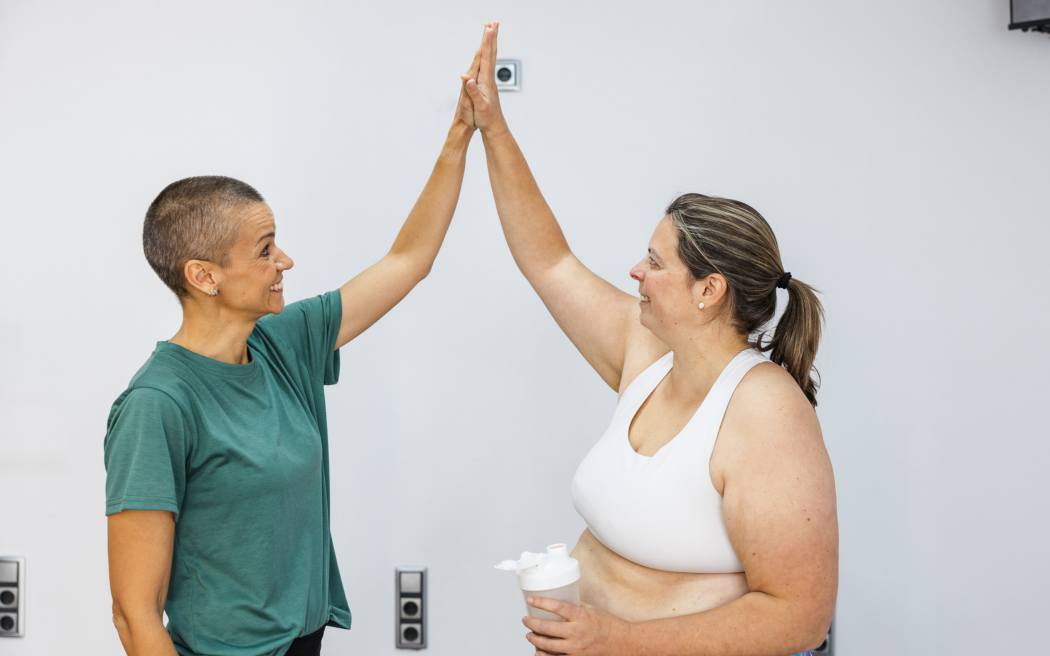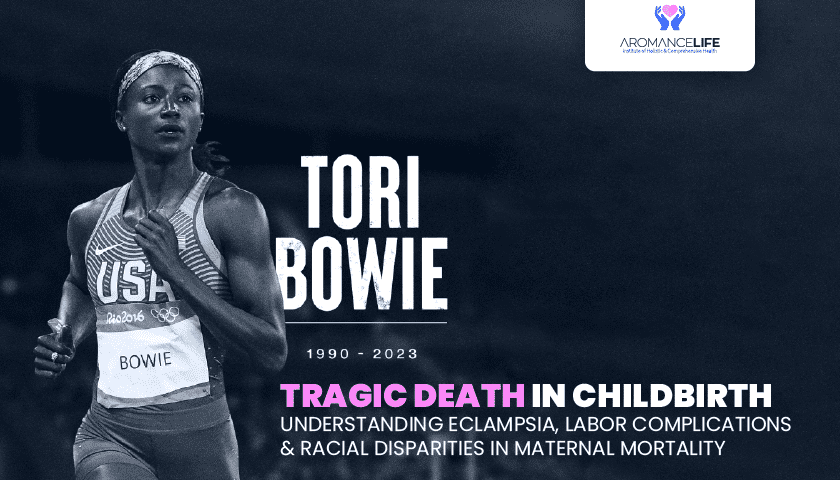
What Is Stem Cell Therapy and What Are Its Benefits? – Aromance Life Institute
July 13, 2023
“Anti-Auto Diets” Anti-Inflammatory & Autoimmune Diets
August 8, 2023The world was left in shock when All Pages news broke of the tragic death of Tori Bowie, a three-time Olympic medalist, during childbirth on May 2, 2023.
Bowie was eight months pregnant and was found dead in her bed in Orlando, FL, along with her stillborn baby girl.
Frentorish Bowie, affectionately known as Tori — is a talented sprinter who competed at the Rio de Janeiro Olympics.
She secured a silver medal in the 100 meters, a bronze in the 200 meters, and a gold in the 4×100-meter relay.
At just 32 years old, her life and the life of her child were cut short because of obstetric complications during labor.
It was days before her body was found.
After days of no contact, a welfare check was conducted on Bowie, by Orange County Sheriff’s Office deputies, leading to the discovery of her body.
According to the autopsy report from the medical examiner’s office in Orlando, Bowie’s complications encompassed respiratory distress and eclampsia.
Eclampsia manifests as seizures that can occur during pregnancy, usually around the 20th week.
On May 12, a funeral was held in Mississippi to bid farewell to Bowie, surrounded by her grieving family and closest friends.
Her story brings to the forefront the urgent need to address the maternal mortality crisis in the United States — particularly the alarming racial disparities in maternal health outcomes.
According to the CDC, Black women are three times more likely to experience pregnancy-related deaths compared to White women.
The National Institutes of Health highlights that even people who were healthy before getting pregnant can experience complications.
What is Eclampsia?
Pre-eclampsia, a condition marked by high blood pressure that arises during pregnancy, has the potential to progress into eclampsia — a rare and severe complication characterized by seizures and the onset of coma.
If it is left untreated, preeclampsia can result in life-threatening complications for both the mother and baby.
In cases of preeclampsia, early delivery of the baby is often recommended.
A study published in 2022 revealed that only 0.3% of live births in the U.S. between 2009 and 2017 were associated with eclampsia.
According to a 2019 study, preeclampsia, which precedes eclampsia, is a more prevalent condition, impacting 5% to 7% of pregnancies worldwide. It has also been associated with over 70,000 maternal mortalities and 500,000 fetal deaths.
‘Women with preeclampsia are at increased risk for organ damage/failure, preterm birth,” says NIH.
Signs of Eclampsia
Pregnancy complications can arise in different forms, and being aware of signs and symptoms is important for early detection and prevention.
Preeclampsia can manifest unexpectedly — if left undetected, this condition can progress to eclampsia and pose a risk of fatality.
Some warning signs of preeclampsia that could lead to eclampsia include:
- Headache
- Visual changes.
- Pain in the liver area.
- Sudden increase in swelling.
- Onset of new nausea or vomiting.
Regular prenatal care and open communication with healthcare providers are essential in monitoring and managing the risks related to preeclampsia.
Check NIH’s list of preeclampsia and eclampsia symptoms.
For many women, childbirth is cherished but some also find it a nerve-wracking journey.
Bowie’s story resonates with expecting mothers, athletes, and anyone who values health.
Maternal Risks Among Black Americans
In 2018, Allyson Felix, an Olympian and former teammate of Bowie, faced preeclampsia and underwent an emergency C-section to deliver her daughter — a decision that saved her life.
During a TED talk, Felix revealed, “I was six months pregnant, and I was so afraid that I trained in the darkness, ensuring no one could witness the life growing inside of me.”
Research has shown that preeclampsia disproportionately affects Black women, possibly due to underlying risk factors like systemic racism in healthcare.
Dr. Regina Davis Moss, President and CEO of In Our Own Voice: National Black Women’s Reproductive Justice Agenda said, “There are systemic barriers that we face in regard to racism, sexism, and income inequality, and that shows up in our healthcare system.”
By acknowledging these issues, we can work towards a more inclusive and just healthcare system that values and prioritizes the health of Black people.
Reflecting on Tori Bowie’s Case
Considering Bowie’s case, where she was an African American, a female, and had the means to access healthcare, one can’t help but wonder: How was eclampsia, a potentially life-threatening condition, missed during her pregnancy?
Structural inequities, implicit biases, and systemic issues within the healthcare system can add to missed diagnoses and delayed interventions.
Addressing these disparities requires collective efforts, increased cultural competence among healthcare providers, and a commitment to providing equitable and accessible care for expectant mothers, regardless of their race or ethnicity.
Only through a holistic and empathetic approach can we hope to bridge the gap and ensure that no woman’s life is put at risk due to preventable complications during pregnancy.
Click here for information on sexual health.
Towards a Comprehensive and Empathetic Healthcare Standard
Ensuring equity in healthcare and eliminating racial health inequities must remain a top priority in public health.
In delivering healthcare, engagement, empowerment, education, and awareness of patients’ needs and risk factors are important components that are often overlooked.
Treatment, healing, and management of anomalies and illnesses constitute the physical aspect of healthcare.
However, to truly provide comprehensive care, healthcare providers must also prioritize the emotional and empathetic aspects of patient health.
Empathy, understanding, and cultural competence are fundamental elements in bridging gaps and addressing disparities in healthcare.
A comprehensive approach involves recognizing and appreciating the uniqueness of each patient, ensuring that their voices are heard, and providing them the care they deserve.
Striving for comprehensive care, where both the physical and emotional health of patients is valued and addressed, should always be the standard.
Only through a holistic approach can providers create a more compassionate and inclusive healthcare system that doesn’t leave the Black community behind.
Bottom Line
As we remember Tori Bowie, let us not forget that her story is just one among many within the Black community.
Addressing women’s health disparities in the US is important for achieving equal healthcare for all.
Health knowledge should not be intimidating but rather accessible to all.
To reduce the risk of delivery complications, preeclampsia, and eclampsia, stay mindful of warning signs and notify your healthcare team if any symptoms arise.
We strongly encourage you to take part in your health by reaching out to healthcare providers, asking questions, seeking guidance, and helping each other out in health endeavors.
Let’s support one another and making a positive impact in the lives of many.
Join us at Aromance Life Institute – we’re here to provide accessible, holistic, and empowering health knowledge to all.









